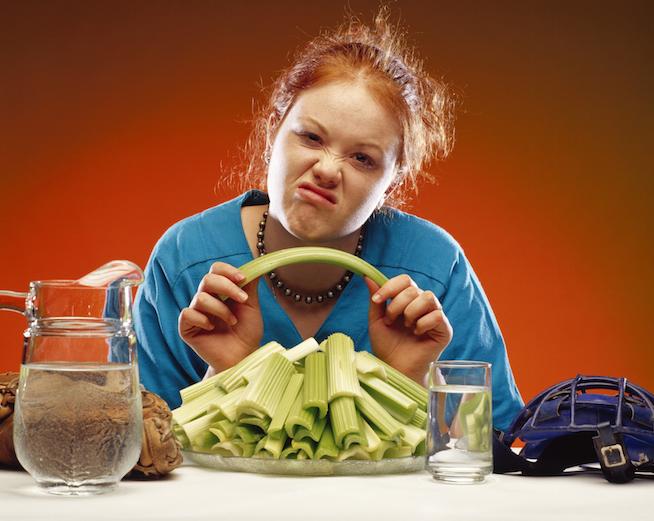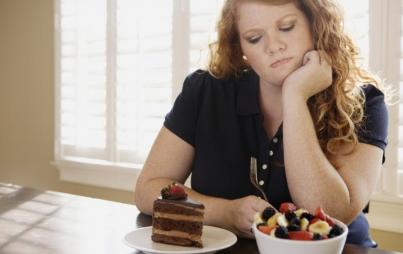
You're a human, not a yo-yo.
Nobody wants the yo-yo, but nobody is talking about how truly physically and emotionally unhealthy it is.
So many of us try to stick to diets, only to find ourselves bingeing, then restricting more, then bingeing again, then restricting more, yo, yo, yo, yo, yo. Our weight is all over the place, our sanity is all over the place, and we feel totally out of control with food.
So why does that happen? Why do so many of us seem to have such terrible “will-power” when it comes to what we put in our mouths?
It comes down to a very fundamental biological mechanism: Your body does not want you to restrict food. At all.
In fact, when you restrict even just a tiny amount, your body responds with more fixation on food, irritability, higher stress hormones, slower metabolism and digestion, less energy, holding onto more weight… and bingeing.
That bingeing is your body purposely forcing you off your diet. But because we still assume that our diet is the best thing for us, we turn around and try to restrict harder — and then we fail, harder.
That's the yo-yo.
Here is the thing people never really realize: Chronic yo-yo dieting is disordered.
And since eating disorders are a spectrum, the yo-yo diet is on that spectrum. No, it's not anorexia or bulimia (though, since yo-yo-ing often includes bingeing, there are certainly yo-yo dieters who may think they have Binge Eating Disorder.) But what the bingeing most often really represents is a biological response to physical restriction. Then, our continued mental fixation on food and weight loss is where we perpetuate the disordered eating.
This means that there are way more eating disorders than we think there are. They go undiagnosed because we've been taught it’s normal and healthy to obsess over food and "losing a few." We think it is normal to live in a chronic binge/repent cycle for the rest of our lives, blaming ourselves endlessly for out lack of willpower, and having the topic dominate our conversations with other women:
“I gained weight.”
“Oh, me too.”
“No, you look tiny!”
“Oh! Well, thanks.”
“I would do anything to not be obsessed with crackers.”
“Tomorrow I'm gonna be good.”
And on and on…
Nobody wants the yo-yo, but nobody is talking about how truly physically and emotionally unhealthy it is.
Our cultural obsession with a tiny body is relatively new, and our cultural relationship to food is also new. Never before did we treat food with such judgment and obsession. Never before did we try to abstain from arbitrary foods based on ever-changing fads. Never before did we pray to be able to walk away from the table hungry. Never before would this kind of feeding and eating have made any sense.
And even though this way of eating is now extremely common, it is still disordered.
And our bodies are not having it. And I don’t blame them.
Diets don’t work, so get off that yo-yo!







